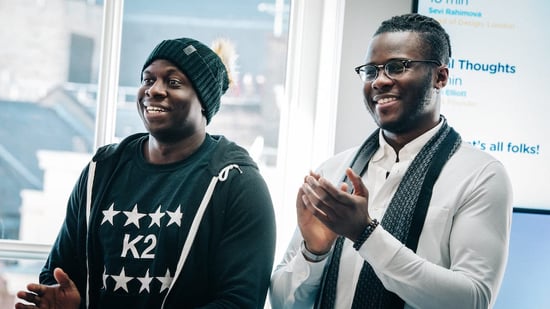
5 min read
You’ve read the posts and the studies that prove the importance of employee recognition for your work - it’s empowering, motivating, and it helps connect you to the purpose and mission of your company. But here’s the problem… you’re not getting recognised or rewarded. And missing out when you know you’ve put in just as much (if not more!) effort as those who do get their fair share of praise doesn’t feel great.
It’s not like you’re expecting a gold-plated trophy or a parade in your honour — you just want a simple acknowledgement that what you’re doing matters.
We get it - the stats don’t lie. There’s a big gap between what managers wish or think they’re achieving with their teams when it comes to recognition, and their employees’ daily reality. Amidst employee engagement survey results and comments like “I wish my manager would recognise me more often,” and “I did a great job yesterday and no one said a thing,” is a real pain that employees are trying to convey and HR is trying to address.
There’s a reason why your manager isn’t recognising you
Maybe your manager grew up thinking that paying employees was enough of a tick of approval, so they think anything outside of that is too much. Or they think that recognition requires a grand gesture or public statement, when in fact all it takes is a sincere “thank you” for a specific contribution or “congratulations” for an accomplishment.
It’s not because you don’t deserve to be recognised - it’s likely they just don’t know why it’s important, and if they do, they think don’t know how to do it “properly”. Being a leader isn’t easy, and something that comes up a lot during my discussions with clients is the fear of getting employee reward and recognition wrong, or the fear of not coming across as genuine.
Maybe your manager hasn’t received the type of recognition you’re seeking, so doesn’t know how to or isn’t comfortable giving it. In any of these instances, managers need support and education, not disdain or resentment.
Managers are human too! And even though it may sound odd, this is as good a time as any to take the lead and set an example.

Simple ways to start with employee recognition
While it would be great for all leaders to see the value of employee recognition and formalise it by rolling out a dedicated reward and recognition platform across the whole business, sometimes you’ve just got to start simple. Instead of waiting for change to come from the top, down, sometimes you’ve got to start from the grassroots or slide in your influence from the side.
Recognising your manager and others in your team first and letting them see the benefits of this positive behaviour might be what you need spark the inspiration to get them on recognition train.
Here are five simple ways you can start building genuine but simple recognition into your daily work life:
- Speak up in a team meeting or use your speaking time as an opportunity to acknowledge a colleague for helping you .
- When a leader demonstrates one of your company values, send them a note or an eCard to show that you’ve noticed and appreciate it.
- After someone leads a fruitful or efficient meeting or delivers a presentation, send them an email to thank them for their leadership and direction.
- Leave an encouraging note with a favourite snack/treat on your colleague’s desk when they’re having a busy or stressful day.
- Use time in the office kitchen to ask your colleagues what they’re working on - thank them for giving you insight into their area of the business and then thank them for their work.
By modelling the behaviour you want to see, you’ll start to see a difference over time.

Why recognising someone else is good for YOU
We know that being recognised is fantastic for boosting your motivation and morale, but giving recognition is just as beneficial. Research shows that practicing gratitude on a regular basis makes us more patient and better able to make sensible decisions. Some studies also show that seeking out and acknowledging the things you’re thankful for also boosts other areas of physical and mental health.
Studies show that people who practice gratitude are more even tempered, happier, and feel better supported by others – all traits which make an excellent employee and contribute to positive workplace culture. We also know that grateful people in high stress careers, such as teachers, are less likely to burn out. That’s not only good for the employee, but good for the company: a lower turnover rate means recruitment costs stay low, and happy, engaged employees demonstrate higher job performance.
By starting a personal practice of recognising others (including your leaders!) you’re doing something that will have long-term positive effects on your own wellbeing, and you’re starting a movement that will have a ripple effect on the people you recognise.
When the time comes to introduce the idea of using technology to enables you to streamline and report on employee reward and recognition around the business, the push for it will be easy because recognition will be second nature to you and your team. Adding a platform will add momentum to the cultural change you’ve started, amplifying the effectiveness and allowing you to see and improve the results.

Take the first step - show your leaders how it’s done
You might know the phrase “be the change you want to see in the world”. Turns out this is actually a simplified paraphrase of what Mahatma Ghandi actually said in a speech, which was:
If we could change ourselves, the tendencies in the world would also change. As a man changes his own nature, so does the attitude of the world change towards him.
In other words, if you want the environment around you to change, start with what you can control yourself. If all you want is to receive a word of thanks, then start by giving it. Recognise your peers. Recognise your manager. Seek out acknowledge the things they’re doing right.
 Kylie Terrell
Kylie Terrell

